While most business books focus on how readers can do more, better and faster, this welcome addition to the category is about taking a moment to pause and reflect. Carroll, a Buddhist-trained HR executive, emphasizes the renewal and perspective that can result from taking some time out. By the end, stressed-out executives may be willing to read about how to give meditation a try as a way to reconnect with themselves and become more open to their colleagues.
Publishers Weekly
Read this bookit could save your organization, your career, and your life!
Prof. Richard Boyatzis, coauthor of Primal Leadership and Resonant Leadership
ABOUT THE BOOK
A new generation of business leaders is turning to mindfulness as a cutting-edge leadership tool. Scientific research suggests that the practice of mindfulness (a technique for learning to live in the present moment) can help individuals to gain clarity, reduce stress, optimize performance, and develop a greater sense of well-being.
In The Mindful Leader, Michael Carroll explains what mindfulness is and how to develop it in the hectic and often stressful environment of the twenty-first century workplace. He focuses on ten key principles of mindfulness and how they apply to leading groups and organizations. Along the way, Carroll addresses a range of topics, including how to:
- heal the toxic workplace, where anxiety and stress impede performance
- cultivate courage and confidence in the face of workplace difficulties
- pursue organizational goals without neglecting whats happening here and now
- lead with wisdom and gentleness, not just with ambition and power
- start a personal meditation practice to develop your innate leadership talents
Full of engaging stories and practical exercises, The Mindful Leader will help leaders in any field to discover their innate intelligence, bravery, and joy on the job.
For over two decades MICHAEL CARROLL worked on Wall Street and in the publishing industry, holding executive positions at Shearson Lehman Brothers, Paine Webber, Simon & Schuster, and the Walt Disney Company. Founding director of AAW Associates, Carroll consults with major corporations on bringing mindfulness into the workplace. He is a longtime student of Buddhist meditation and an authorized teacher in the lineage of Chgyam Trungpa. Carroll has taught mindfulness meditation at the Wharton School of Business, Columbia University, Kripalu, and the Cape Cod Institute. For more information, visit www.awakeatwork.net.
Sign up to learn more about our books and receive special offers from Shambhala Publications.

Or visit us online to sign up at shambhala.com/eshambhala.
THE MINDFUL LEADER
AWAKENING YOUR
NATURAL MANAGEMENT
SKILLS THROUGH
MINDFULNESS MEDITATION
 Michael Carroll
Michael Carroll

TRUMPETER
BOSTON & LONDON
2011
Trumpeter Books
An imprint of Shambhala Publications, Inc.
Horticultural Hall
300 Massachusetts Avenue
Boston, Massachusetts 02115
trumpeterbooks.com
2007 by Michael Carroll
All rights reserved. No part of this book may be reproduced in any form or by any means, electronic or mechanical, including photocopying, recording, or by any information storage and retrieval system, without permission in writing from the publisher.
Library of Congress Cataloging-in-Publication Data
Carroll, Michael, 1953
The mindful leader: awakening your natural management skills through mindfulness meditation / Michael Carroll.
p. cm.
Includes bibliographical references
eISBN 978-0-8348-2262-7
ISBN 978-1-59030-620-8 (pbk.: alk. paper)
1. Leadership. 2. Meditation. 3. Mind and body. 4. Motivation (Psychology) I.Title.
HD57.7.C3683 2008
658.4092dc22
2008038486
To my teachers, past and present, and the noble lineage of bodhisattva-warriors
The challenge of warriorship is to live fully in the world as it is and to find within this world, with all its paradoxes, the essence of nowness.
Chgyam Trungpa Rinpoche, Eleventh Trungpa Tulku of the Kagyu Surmang lineage of Tibet
Face reality as it is, not as it was or as you wish it to be.
Jack Welch, former CEO of General Electric
CONTENTS
THE TRADITION OF THE MINDFUL LEADER
ITS TUESDAY AFTERNOON, and in forty-eight hours, you and your team have to deliver the final budget for the new product line. Two of your team members have to catch a flight in eight hours, and they are working feverishly to complete their piece of the plan. The senior product designer is leaving to pick her children up at school, and the finance department is on the phone requestingwell, demandingsome preliminary numbers for the CEO to review before the day is out. And you... well, youre trying to keep the team focused and coordinated in an atmosphere that feels like a pressure cooker on steroids. And then your boss enters the room and says, I want everyone to stop what theyre doing right now and give me your full attention. Set your laptops aside, hang up the phones, put the spreadsheets away, and stop editing the PowerPoint presentations.
Now, such an entrance will grab our attention no doubt, because it hints of some ominous business, indeed. But then your boss says, Now that I have your attention and weve stopped working, lets sit here for a moment... just quietly sit here and do nothing at all.
For many of us, such a scenario would be absurd. Here we are in the midst of a fast-paced project, trying to meet a tight deadline and handle some unpredictable demands, and suddenly we are asked to stop and just sit here?! While such a suggestion may appear unacceptable or even insulting, it is exactly what is happening in many work settings throughout the United States and around the world. People are taking time to simply sit still and practice what is widely known as mindfulness meditation. Lets review just a few examples:
 Confronted with the distressing fact that over 60 percent of medical interns were exhibiting symptoms of severe burnout, Dr. Craig Hassad of Monash University Medical School in Melbourne, Australia, taught his doctors to meditate.
Confronted with the distressing fact that over 60 percent of medical interns were exhibiting symptoms of severe burnout, Dr. Craig Hassad of Monash University Medical School in Melbourne, Australia, taught his doctors to meditate.
 Companies such as Raytheon, Proctor & Gamble, Unilever, Nortel Networks, Comcast, and many law firms have offered their employees classes in mindfulness meditation.
Companies such as Raytheon, Proctor & Gamble, Unilever, Nortel Networks, Comcast, and many law firms have offered their employees classes in mindfulness meditation.
 When Harvard Law School sponsored a conference of practicing attorneys to investigate why lawyers tend to get trapped in adversarial mind-sets and suffer from remarkably high rates of depression, it began the conference by practicing mindfulness meditation.
When Harvard Law School sponsored a conference of practicing attorneys to investigate why lawyers tend to get trapped in adversarial mind-sets and suffer from remarkably high rates of depression, it began the conference by practicing mindfulness meditation.
 Protecting and Serving without Fear, a seminar offered to law enforcement agents in Madison, Wisconsin, taught the attending police officers how to meditate.
Protecting and Serving without Fear, a seminar offered to law enforcement agents in Madison, Wisconsin, taught the attending police officers how to meditate.
 Executives such as Bill Ford Jr., the chairman of Ford Motor Company; Michael Stephen, the former chairman of Aetna International; Robert Shapiro, the ex-CEO of Monsanto; and Michael Rennie, the managing partner of McKinsey, meditate and consider such a practice beneficial to running a corporation.
Executives such as Bill Ford Jr., the chairman of Ford Motor Company; Michael Stephen, the former chairman of Aetna International; Robert Shapiro, the ex-CEO of Monsanto; and Michael Rennie, the managing partner of McKinsey, meditate and consider such a practice beneficial to running a corporation.
Next page
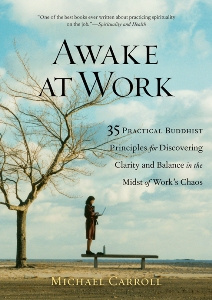
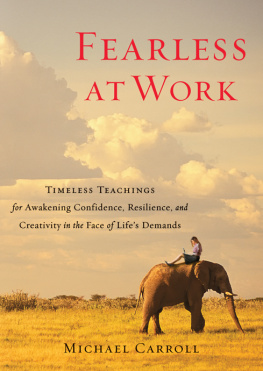
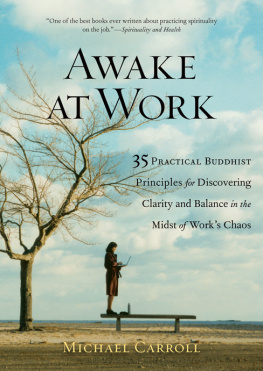
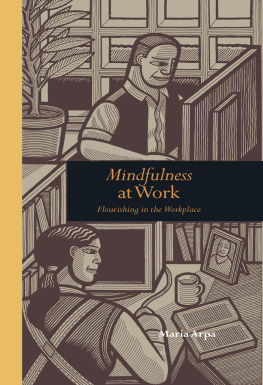
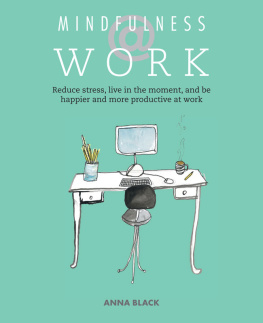

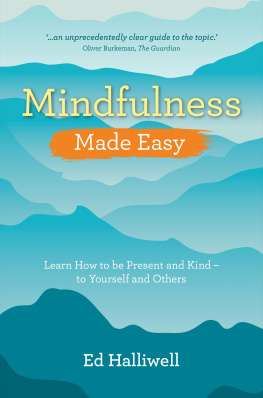


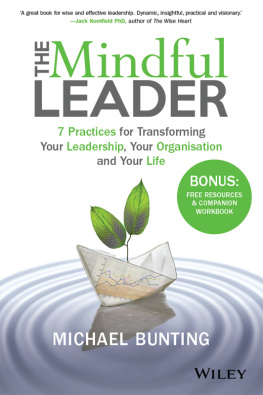

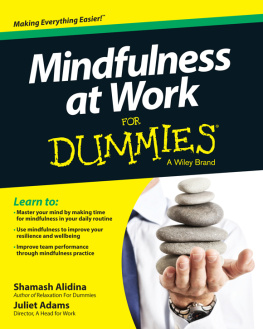

 Michael Carroll
Michael Carroll
 Confronted with the distressing fact that over 60 percent of medical interns were exhibiting symptoms of severe burnout, Dr. Craig Hassad of Monash University Medical School in Melbourne, Australia, taught his doctors to meditate.
Confronted with the distressing fact that over 60 percent of medical interns were exhibiting symptoms of severe burnout, Dr. Craig Hassad of Monash University Medical School in Melbourne, Australia, taught his doctors to meditate.